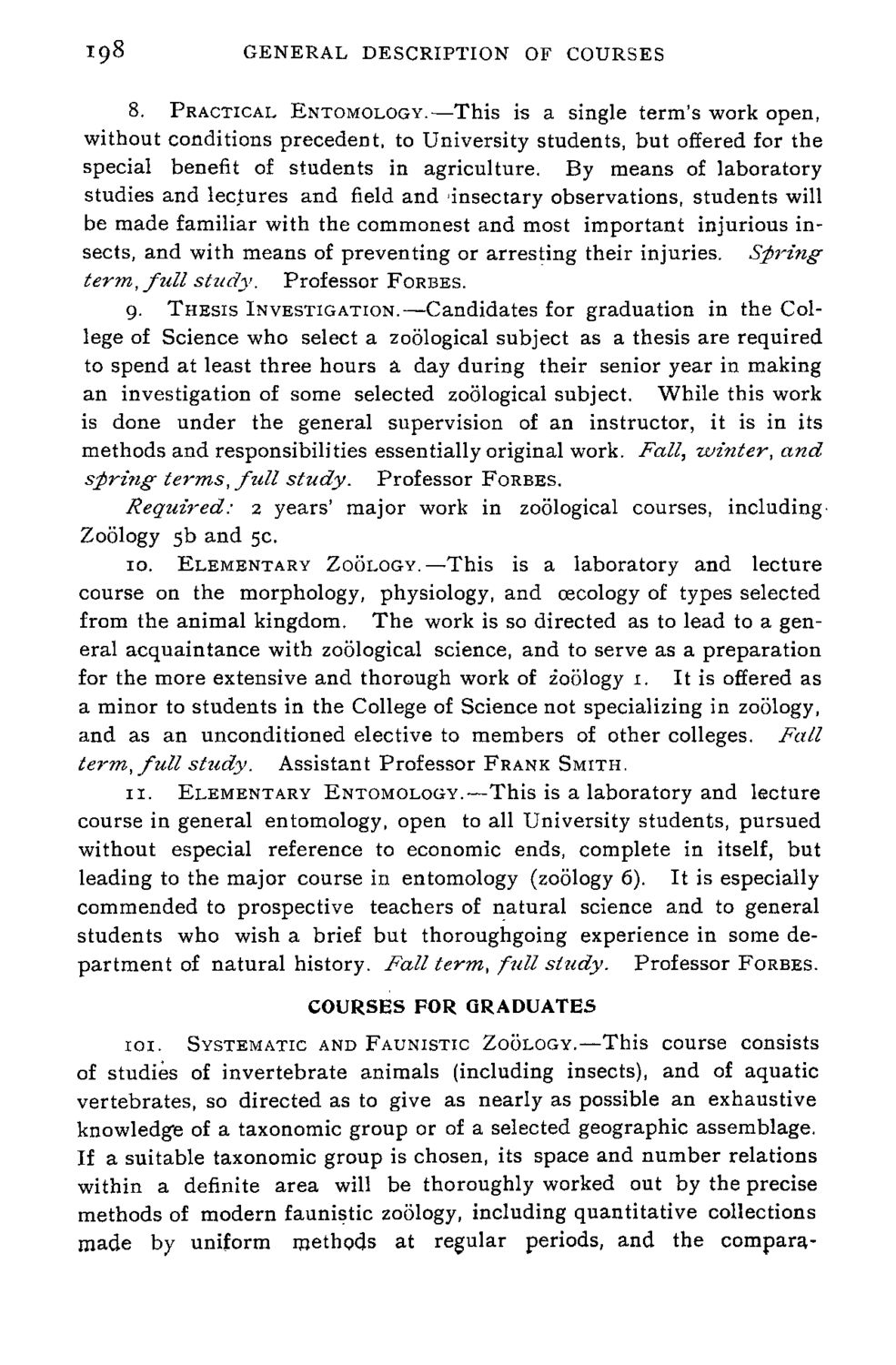Caption: Course Catalog - 1896-1897
This is a reduced-resolution page image for fast online browsing.

EXTRACTED TEXT FROM PAGE:
198 GENERAL DESCRIPTION OF COURSES 8. PRACTICAL ENTOMOLOGY.—This is a single term's work open, without conditions precedent, to University students, but offered for the special benefit of students in agriculture. By means of laboratory studies and lectures and field and insectary observations, students will be made familiar with the commonest and most important injurious insects, and with means of preventing or arresting their injuries. Sfring term, full study. Professor FORBES. 9. THESIS INVESTIGATION.—Candidates for graduation in the Col- lege of Science who select a zoological subject as a thesis are required to spend at least three hours a day during their senior year in making an investigation of some selected zoological subject. While this work is done under the general supervision of an instructor, it is in its methods and responsibilities essentially original work. Fall, winter, and spring terms, full study. Professor FORBES. Required: 2 years' major work in zoological courses, including Zoology 5b and 5c. 10. ELEMENTARY ZOOLOGY.—This is a laboratory and lecture course on the morphology, physiology, and cecology of types selected from the animal kingdom. The work is so directed as to lead to a general acquaintance with zoological science, and to serve as a preparation for the more extensive and thorough work of zoology 1. It is offered as a minor to students in the College of Science not specializing in zoology, and as an unconditioned elective to members of other colleges. Fall term, full study. Assistant Professor FRANK SMITH. 11. ELEMENTARY ENTOMOLOGY.—This is a laboratory and lecture course in general entomology, open to all University students, pursued without especial reference to economic ends, complete in itself, but leading to the major course in entomology (zoology 6). It is especially commended to prospective teachers of natural science and to general students who wish a brief but thoroughgoing experience in some department of natural history. Fall term, full sttidy. Professor FORBES. COURSES FOR GRADUATES 101. SYSTEMATIC AND FAUNISTIC ZOOLOGY.—This course consists of studies of invertebrate animals (including insects), and of aquatic vertebrates, so directed as to give as nearly as possible an exhaustive knowledge of a taxonomic group or of a selected geographic assemblage. If a suitable taxonomic group is chosen, its space and number relations within a definite area will be thoroughly worked out by the precise methods of modern faunistic zoology, including quantitative collections made by uniform methods at regular periods, and the compara-
|